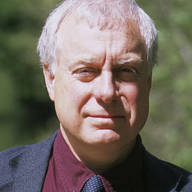 Professor Robert Gildea, network lead for Transnational Resistance 1936-1948, is Professor of Modern History in the History Faculty, and Professorial Fellow at Worcester College, University of Oxford. His interests are in French and European history in the nineteenth and twentieth centuries. He has written on the impact of the German occupation in France and Europe during the Second World War and is currently working on French and European Resistance. He recently directed an international collaborative research project on 1968 in Europe based on the collection and analysis of oral testimony.
Professor Robert Gildea, network lead for Transnational Resistance 1936-1948, is Professor of Modern History in the History Faculty, and Professorial Fellow at Worcester College, University of Oxford. His interests are in French and European history in the nineteenth and twentieth centuries. He has written on the impact of the German occupation in France and Europe during the Second World War and is currently working on French and European Resistance. He recently directed an international collaborative research project on 1968 in Europe based on the collection and analysis of oral testimony.
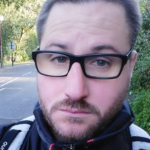 Dr Enrico Acciai is a Marie Curie Fellow in the School of History at the University of Leeds. His research interests focus on war volunteering, the Spanish Civil War, the history of the Italian Antifascism, and the diffusion of anarchism in southern Europe between the nineteenth and twentieth century. His first monograph, Antifascismo, volontariato e guerra civile in Spagna (Unicopli, 2016), analysed the first military formation integrated only by Italian antifascists that fought during the Spanish Civil War. His current research focuses on the relationship between war volunteering and political radicalism in southern Europe. He is working on the project “Garibaldinism and radicalism: Traditions of transnational war volunteering in Southern Europe, 1861-1936”. This project’s overall objective is to carry out a transnational study of the legacies and the survival of the myth of the so-called Garibaldinism between the experience of the Italian unification (1861) and the Spanish Civil War (1936-39).
Dr Enrico Acciai is a Marie Curie Fellow in the School of History at the University of Leeds. His research interests focus on war volunteering, the Spanish Civil War, the history of the Italian Antifascism, and the diffusion of anarchism in southern Europe between the nineteenth and twentieth century. His first monograph, Antifascismo, volontariato e guerra civile in Spagna (Unicopli, 2016), analysed the first military formation integrated only by Italian antifascists that fought during the Spanish Civil War. His current research focuses on the relationship between war volunteering and political radicalism in southern Europe. He is working on the project “Garibaldinism and radicalism: Traditions of transnational war volunteering in Southern Europe, 1861-1936”. This project’s overall objective is to carry out a transnational study of the legacies and the survival of the myth of the so-called Garibaldinism between the experience of the Italian unification (1861) and the Spanish Civil War (1936-39).
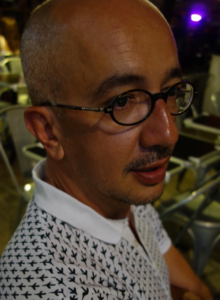 Dr Bojan Aleksov is Senior Lecturer in Modern Southeast European History in the School of Slavonic and East European Studies (SSEES), University College London. His principle research interest lies in what he believes to be the key issue in the modern history of the Balkans, namely the nexus of religion and nationalism, the two most powerful identitarian forces. He explores historical factors, causality and agency that led to the identification of confessional affiliation and national identity among almost all Balkan nations in the wake of the demise of two Empires (Ottoman and Habsburg), which ruled the region over centuries. Following on from his book Religious Dissent in the Age of Modernization and Nationalism (extended version in Serbian Nazareni među Srbima) that dealt with the key period when the confessional/national symbiosis was cemented, in a range of other articles he has looked at the manifestation and consequences of this development, looking at issues that range from the legacy of Enlightenment or discourse on Islamisation to more contemporary phenomena such as alleged Marian apparitions in Međugorje in Bosnia.
Dr Bojan Aleksov is Senior Lecturer in Modern Southeast European History in the School of Slavonic and East European Studies (SSEES), University College London. His principle research interest lies in what he believes to be the key issue in the modern history of the Balkans, namely the nexus of religion and nationalism, the two most powerful identitarian forces. He explores historical factors, causality and agency that led to the identification of confessional affiliation and national identity among almost all Balkan nations in the wake of the demise of two Empires (Ottoman and Habsburg), which ruled the region over centuries. Following on from his book Religious Dissent in the Age of Modernization and Nationalism (extended version in Serbian Nazareni među Srbima) that dealt with the key period when the confessional/national symbiosis was cemented, in a range of other articles he has looked at the manifestation and consequences of this development, looking at issues that range from the legacy of Enlightenment or discourse on Islamisation to more contemporary phenomena such as alleged Marian apparitions in Međugorje in Bosnia.
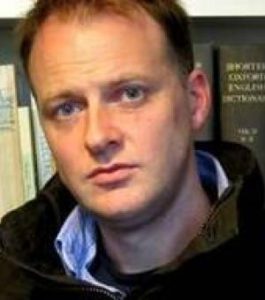 Dr Roderick Bailey is Departmental Lecturer in History of Medicine and a military historian specialising in the study of resistance, intelligence and clandestine warfare. Funded by the Wellcome Trust, his current research examines how Britain’s Special Operations Executive (SOE), a clandestine Allied organization set up in the Second World War to encourage resistance and carry out sabotage behind enemy lines, addressed the impact of the psychological stresses to which its operatives were exposed. It explores the processes by which candidates were recruited and screened for this high-risk, high-strain, unconventional employment, which included the application by professional psychologists and psychiatrists of pioneering procedures of testing and assessment, and the degree to which those processes were effective in identifying personnel able to cope and work well in the field. It also examines the procedures in place for diagnosing and treating survivors who returned with psychological problems.
Dr Roderick Bailey is Departmental Lecturer in History of Medicine and a military historian specialising in the study of resistance, intelligence and clandestine warfare. Funded by the Wellcome Trust, his current research examines how Britain’s Special Operations Executive (SOE), a clandestine Allied organization set up in the Second World War to encourage resistance and carry out sabotage behind enemy lines, addressed the impact of the psychological stresses to which its operatives were exposed. It explores the processes by which candidates were recruited and screened for this high-risk, high-strain, unconventional employment, which included the application by professional psychologists and psychiatrists of pioneering procedures of testing and assessment, and the degree to which those processes were effective in identifying personnel able to cope and work well in the field. It also examines the procedures in place for diagnosing and treating survivors who returned with psychological problems.
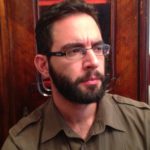 Dr Iason Chandrinos is currently working as research associate at Freie Universität Berlin, on the project Memories of the Occupation in Greece. He is member of the Workshop on the Study of the Jews of Greece. He received his PhD from the Department of History and Archaeology, University of Athens, in 2015. His thesis –entitled “Cities at War: European urban centers under Nazi occupation, 1939-1945”– entails a comparative study of Nazi occupation, everyday life and resistance in the european urban landscape (in press). He has published the book The People’s Punishing Arm: The history of ELAS and OPLA in occupied Athens 1942-1944 (Themelio Publications, Athens 2012) that was based on his MA, concerning the activities of urban guerilla formations and adjacent liquidation squads of the communist resistance in Athens during the German Occupation. Since 2007 he is a special researcher for the Jewish Museum of Greece and has ever since focused on the contemporary history of the Greek Jews. He supervised the exhibition Synagonistis: Greek Jews in the National Resistance (2013) and the National Holocaust Exhibition, to be inaugurated in Auschwitz- Birkenau State Museum in 2018. He has also cooperated with the United States Holocaust Memorial Museum (USHMM) in archival research about the Holocaust in Greece. From October 2016 to October 2017 he taught at University of Regensburg as visiting professor.
Dr Iason Chandrinos is currently working as research associate at Freie Universität Berlin, on the project Memories of the Occupation in Greece. He is member of the Workshop on the Study of the Jews of Greece. He received his PhD from the Department of History and Archaeology, University of Athens, in 2015. His thesis –entitled “Cities at War: European urban centers under Nazi occupation, 1939-1945”– entails a comparative study of Nazi occupation, everyday life and resistance in the european urban landscape (in press). He has published the book The People’s Punishing Arm: The history of ELAS and OPLA in occupied Athens 1942-1944 (Themelio Publications, Athens 2012) that was based on his MA, concerning the activities of urban guerilla formations and adjacent liquidation squads of the communist resistance in Athens during the German Occupation. Since 2007 he is a special researcher for the Jewish Museum of Greece and has ever since focused on the contemporary history of the Greek Jews. He supervised the exhibition Synagonistis: Greek Jews in the National Resistance (2013) and the National Holocaust Exhibition, to be inaugurated in Auschwitz- Birkenau State Museum in 2018. He has also cooperated with the United States Holocaust Memorial Museum (USHMM) in archival research about the Holocaust in Greece. From October 2016 to October 2017 he taught at University of Regensburg as visiting professor.
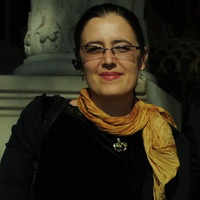 Dr Cristina Diac is a senior researcher within the National Institute for the Study of Totalitarianism of the Romanian Academy. Since 2012, she collaborates with the Faculty of History, University of Bucharest, and the History of the Romanians and of the South-Eastern Europe Department, providing a course on the communist movement in interwar Romania. Her PhD thesis, published in 2014, addressed the Communist Party of Romania during Second World War. Between 2011 and 2013 she conducted research, funded by the Romanian National Council for Scientific Research, investigating the leaders of the CPoR from a prosopographical perspective. The main output was a database with one thousand entries (basic information about communist militants), extracted mostly from cadre files held the National Archives of Romania. Recently, she has published biographical studies on the most important leaders of the CPoR, based on documents identified within the Russian Archive for the Socio-Political History, Moscow, Russian Federation (RGASPI) and Romanian archives. She also contributed to the most recent Nicolae Ceaușescu’s biography.
Dr Cristina Diac is a senior researcher within the National Institute for the Study of Totalitarianism of the Romanian Academy. Since 2012, she collaborates with the Faculty of History, University of Bucharest, and the History of the Romanians and of the South-Eastern Europe Department, providing a course on the communist movement in interwar Romania. Her PhD thesis, published in 2014, addressed the Communist Party of Romania during Second World War. Between 2011 and 2013 she conducted research, funded by the Romanian National Council for Scientific Research, investigating the leaders of the CPoR from a prosopographical perspective. The main output was a database with one thousand entries (basic information about communist militants), extracted mostly from cadre files held the National Archives of Romania. Recently, she has published biographical studies on the most important leaders of the CPoR, based on documents identified within the Russian Archive for the Socio-Political History, Moscow, Russian Federation (RGASPI) and Romanian archives. She also contributed to the most recent Nicolae Ceaușescu’s biography.
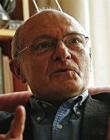 Professeur Laurent Douzou is Professor of Contemporary History at the Institut d’Etudes Politiques de Lyon, Institut Universitaire de France (IUF). For the period 2012-17 he has been elected a Senior member of the Institut Universitaire de France. In 2010-12 he was Visiting Professor at the Maison Française, Oxford. Between 1995 and 1999 he was Associate professor at the University Lumière Lyon 2. He was awarded his state doctorate in 1993 at the Univerity of Paris 1 for his thesis on ‘Le Mouvement de Résistance Libération-Sud (1940- 1944)’, with the highest possible accolade. Laurent Douzou is an internationally recognised historian of the French Resistance, and the history and memory of the Second World War. He is an expert on the historiography of Resistance and the Vichy regime, and has contributed to debates in the academy about the use of oral history sources.
Professeur Laurent Douzou is Professor of Contemporary History at the Institut d’Etudes Politiques de Lyon, Institut Universitaire de France (IUF). For the period 2012-17 he has been elected a Senior member of the Institut Universitaire de France. In 2010-12 he was Visiting Professor at the Maison Française, Oxford. Between 1995 and 1999 he was Associate professor at the University Lumière Lyon 2. He was awarded his state doctorate in 1993 at the Univerity of Paris 1 for his thesis on ‘Le Mouvement de Résistance Libération-Sud (1940- 1944)’, with the highest possible accolade. Laurent Douzou is an internationally recognised historian of the French Resistance, and the history and memory of the Second World War. He is an expert on the historiography of Resistance and the Vichy regime, and has contributed to debates in the academy about the use of oral history sources.
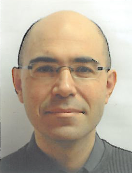 Dr Yaacov Falkov, lecturer in history at Tel Aviv University, is an unrivalled expert on Jewish and Soviet resistance in the Russian borderlands. His PhD on The Use of Guerrilla Forces for the Intelligence Purposes of the Soviet Partisan Movement, 1941-1945, examined the intelligence work of Soviet Partisans in the German occupied territories of the USSR and Eastern Europe (Baltic States, Poland, Czechoslovakia, Hungary, Romania), and their relationships with local populace and resistance forces. His publications, which to date are in Hebrew, include, ‘To Set the Fascist’s Rear Ablaze: The Input of Guerrilla Warfare in the Soviet Military Effort, 1941-1945’, Maarachot, Vol. 446 (December 2012), pp. 57-63; ‘From Failure in June to Success in December: The Impact of Intelligence on Operation ‘Barbarossa’, Maarachot, Vol. 438 (August 2011), pp. 46-55; ‘Current Research on the Soviet Partisan Movement’, Zmanim. A Historical Quarterly, Vol. 116 (Autumn 2011), pp. 18-31; and ‘Jews as a Nation are Exterminated, as Everywhere Else’. The Murder of the USSR Jews as Reflected in Intelligence Reports Submitted by Soviet Partisans”, DAPIM: Studies on the Holocaust, The Institute for Research of the Holocaust, University of Haifa and The Ghetto Fighters House, Vol. 22 (2008), pp. 239-264. Dr Falkov is fluent in English, Russian, German, Latvian, Ukrainian, Belorussian, Polish, Slovakian, Hebrew, and Yiddish. He has an expert knowledge of the archival system of the former Soviet Union and Israel. He will contribute expertise on the emergence and development of Jewish resistance in the Russian borderlands and its often difficult links to non-Jewish resistance.
Dr Yaacov Falkov, lecturer in history at Tel Aviv University, is an unrivalled expert on Jewish and Soviet resistance in the Russian borderlands. His PhD on The Use of Guerrilla Forces for the Intelligence Purposes of the Soviet Partisan Movement, 1941-1945, examined the intelligence work of Soviet Partisans in the German occupied territories of the USSR and Eastern Europe (Baltic States, Poland, Czechoslovakia, Hungary, Romania), and their relationships with local populace and resistance forces. His publications, which to date are in Hebrew, include, ‘To Set the Fascist’s Rear Ablaze: The Input of Guerrilla Warfare in the Soviet Military Effort, 1941-1945’, Maarachot, Vol. 446 (December 2012), pp. 57-63; ‘From Failure in June to Success in December: The Impact of Intelligence on Operation ‘Barbarossa’, Maarachot, Vol. 438 (August 2011), pp. 46-55; ‘Current Research on the Soviet Partisan Movement’, Zmanim. A Historical Quarterly, Vol. 116 (Autumn 2011), pp. 18-31; and ‘Jews as a Nation are Exterminated, as Everywhere Else’. The Murder of the USSR Jews as Reflected in Intelligence Reports Submitted by Soviet Partisans”, DAPIM: Studies on the Holocaust, The Institute for Research of the Holocaust, University of Haifa and The Ghetto Fighters House, Vol. 22 (2008), pp. 239-264. Dr Falkov is fluent in English, Russian, German, Latvian, Ukrainian, Belorussian, Polish, Slovakian, Hebrew, and Yiddish. He has an expert knowledge of the archival system of the former Soviet Union and Israel. He will contribute expertise on the emergence and development of Jewish resistance in the Russian borderlands and its often difficult links to non-Jewish resistance.
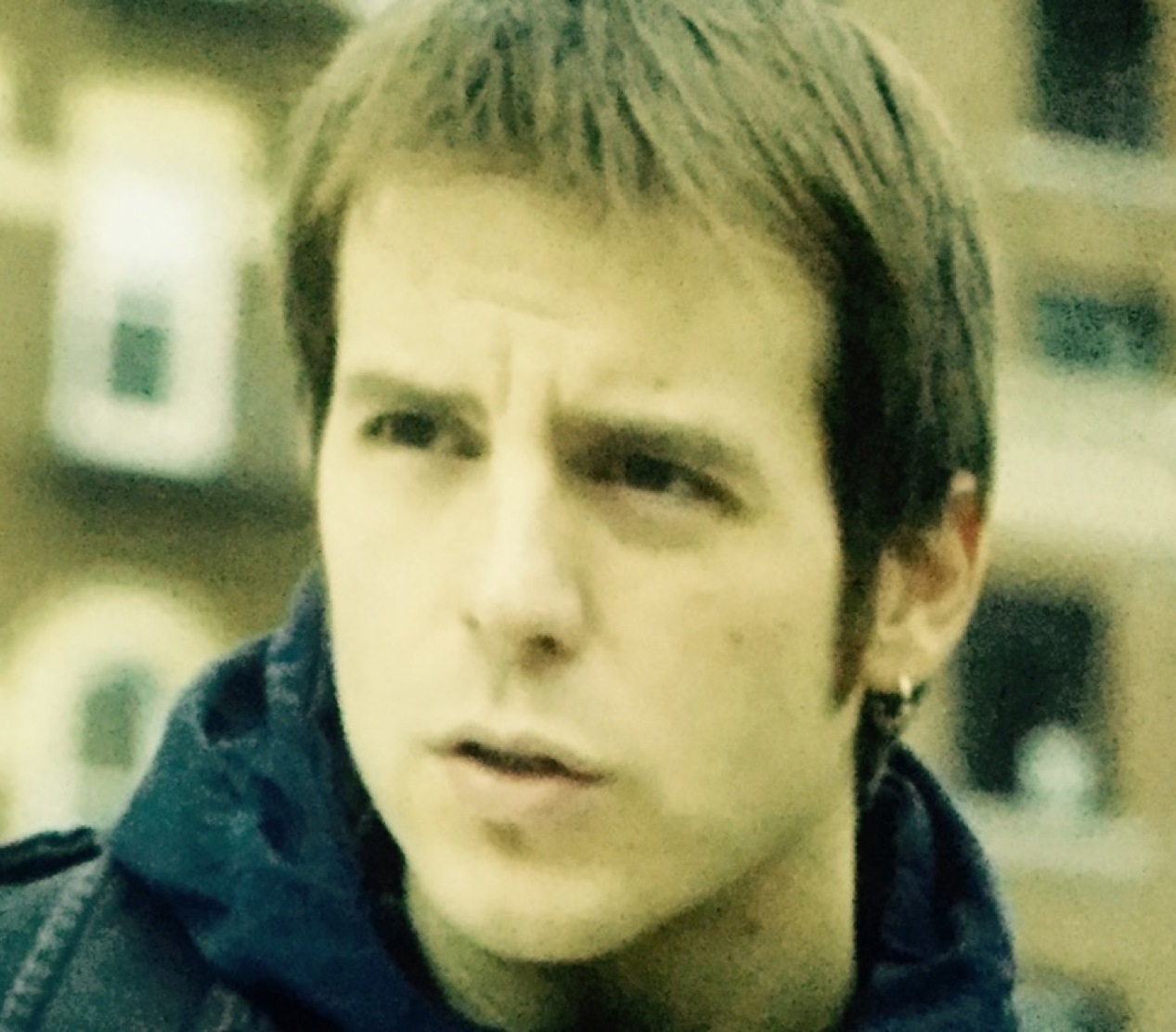 Dr Diego Gaspar is a Juan de la Cierva F. Postdoctoral Fellow at University of Alcala (UAH, Madrid) and Associated Researcher at Fondation de la Résistance (Paris). His research interests are in Spanish Civil War exile in France, Foreigner’s participation in French Resistance, Military History and French Resistance History vs Memory and War/Resistance narratives. He completed his PhD on a project that crucially explores the links and continuities between the Spanish Civil War (1936-39) and the Second World War. More specifically, Gaspar’s dissertation deals with the Spanish exiles who, having left Franco’s Spain after the Civil War, joined the French Free forces (Forces Françaises Libres, FFL) commanded by De Gaulle, and fought as “transnational freedom fighters” in Africa and Europe against Axis forces between 1940 and 1945. Prior to working at Alcalà, he was a Research Division Leader in the European (INTERREG IV POCTEFA) Projet RECRUT (www.recurut.eu) devoted to study the Spanish-French Migratory Movements over Pyrenees. His Ph.D in History: The war continued. Spanish volunteers to the Free France service was published in November 2015 by the prestigious Spanish publisher Marcial Pons. Author of several exhibitions dedicated to the Spanish exile and participation in WW2, Dr Gaspar is currently focused on the comparative analysis of foreign participation in the French internal and external Resistance.
Dr Diego Gaspar is a Juan de la Cierva F. Postdoctoral Fellow at University of Alcala (UAH, Madrid) and Associated Researcher at Fondation de la Résistance (Paris). His research interests are in Spanish Civil War exile in France, Foreigner’s participation in French Resistance, Military History and French Resistance History vs Memory and War/Resistance narratives. He completed his PhD on a project that crucially explores the links and continuities between the Spanish Civil War (1936-39) and the Second World War. More specifically, Gaspar’s dissertation deals with the Spanish exiles who, having left Franco’s Spain after the Civil War, joined the French Free forces (Forces Françaises Libres, FFL) commanded by De Gaulle, and fought as “transnational freedom fighters” in Africa and Europe against Axis forces between 1940 and 1945. Prior to working at Alcalà, he was a Research Division Leader in the European (INTERREG IV POCTEFA) Projet RECRUT (www.recurut.eu) devoted to study the Spanish-French Migratory Movements over Pyrenees. His Ph.D in History: The war continued. Spanish volunteers to the Free France service was published in November 2015 by the prestigious Spanish publisher Marcial Pons. Author of several exhibitions dedicated to the Spanish exile and participation in WW2, Dr Gaspar is currently focused on the comparative analysis of foreign participation in the French internal and external Resistance.
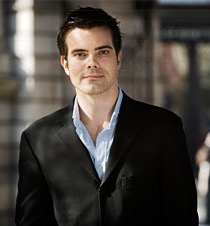 Professor Robert Gerwarth is Professor of Modern History at University College Dublin (UCD) and Director of the Centre for War Studies. He also serves as Vice-Principal for Global Engagement in the College of Arts and Humanities. After studying history and political science in Berlin, he completed his DPhil and a British Academy Postdoctoral Fellowship at Oxford University. Prof. Gerwarth has also held research fellowships or visiting professorships at Harvard University, the Institute for Advanced Study in Princeton, and Sciences Po Paris. In 2013-14 he was an Alexander von Humboldt Senior Research Fellow at the Herder Institute and a Fernand Braudel Fellow at the European University Institute.
Professor Robert Gerwarth is Professor of Modern History at University College Dublin (UCD) and Director of the Centre for War Studies. He also serves as Vice-Principal for Global Engagement in the College of Arts and Humanities. After studying history and political science in Berlin, he completed his DPhil and a British Academy Postdoctoral Fellowship at Oxford University. Prof. Gerwarth has also held research fellowships or visiting professorships at Harvard University, the Institute for Advanced Study in Princeton, and Sciences Po Paris. In 2013-14 he was an Alexander von Humboldt Senior Research Fellow at the Herder Institute and a Fernand Braudel Fellow at the European University Institute.
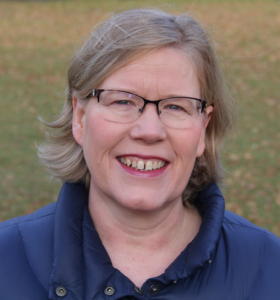 Dr Megan Koreman has published on the Liberation in small town France. Her history of the Dutch-Paris Escape Line has already been translated into Dutch and will appear in English in 2018. She is especially interested in the question of what war means to ordinary people in both their physical and mental lives. Dr Koreman has been an associated researcher with the Nederlands Instituut voor Oorlogsdocumentatie; a visiting associate professor at the University of Michigan, and an assistant and associate professor at Texas Tech University.
Dr Megan Koreman has published on the Liberation in small town France. Her history of the Dutch-Paris Escape Line has already been translated into Dutch and will appear in English in 2018. She is especially interested in the question of what war means to ordinary people in both their physical and mental lives. Dr Koreman has been an associated researcher with the Nederlands Instituut voor Oorlogsdocumentatie; a visiting associate professor at the University of Michigan, and an assistant and associate professor at Texas Tech University.
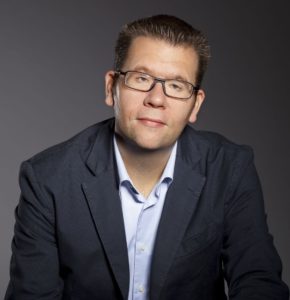 Dr Samuël Kruizinga is assistant professor in contemporary and military history in the Modern History Research Group of the Amsterdam School of Culture and History (ASCH) at the Humanities Faculty of the University of Amsterdam. He specialises in the global impact of conflict during the nineteenth and twentieth centuries, focusing especially on the First World War and the Spanish Civil War. He has written extensively about neutrality during the First World War, specifically about the impact of economic warfare on neutrals in 1914-1918. His new research project is on the history of foreign fighting in Europe in the nineteenth and twentieth centuries.
Dr Samuël Kruizinga is assistant professor in contemporary and military history in the Modern History Research Group of the Amsterdam School of Culture and History (ASCH) at the Humanities Faculty of the University of Amsterdam. He specialises in the global impact of conflict during the nineteenth and twentieth centuries, focusing especially on the First World War and the Spanish Civil War. He has written extensively about neutrality during the First World War, specifically about the impact of economic warfare on neutrals in 1914-1918. His new research project is on the history of foreign fighting in Europe in the nineteenth and twentieth centuries.
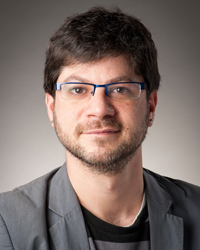 Dr Jorge Marco is a lecturer in Spanish Politics, History and Society in the Department of Politics, Languages and International Studies at the University of Bath. His research interests are in violence and memory war in the twentieth century. He completed his PhD on the Spanish Guerrilla Movement against Franco in 2011. Prior to working at Bath, he was a lecturer in Modern History in the Department of Modern History at the Universidad Complutense de Madrid. His current projects include Mapa de la memoria histórica de Granada; Madrid en guerra: capital, ciudad, frente y retaguardia, 1936-1939; and Approche transnationale des résistances antifascistes en Europe du Sud (Espagne, France, Italie, Yougoslavie, Grèce) des années 1930 à la fin des années 1940. Recent publications include Guerrilleros and Neighbours in Arms: Identities and Cultures of Anti-fascist Resistance in Spain (Sussex Academic Press, 2016) and (with Gordim da Silveira, H. and Valim Mansan, J.) Violência e sociedade em ditaduras ibero-americanas no século XX Argentina, Brasil, Espanha e Portugal (Editora Universitária da Pontificia Universidade Católica do Rio Grande do Sul, 2015).
Dr Jorge Marco is a lecturer in Spanish Politics, History and Society in the Department of Politics, Languages and International Studies at the University of Bath. His research interests are in violence and memory war in the twentieth century. He completed his PhD on the Spanish Guerrilla Movement against Franco in 2011. Prior to working at Bath, he was a lecturer in Modern History in the Department of Modern History at the Universidad Complutense de Madrid. His current projects include Mapa de la memoria histórica de Granada; Madrid en guerra: capital, ciudad, frente y retaguardia, 1936-1939; and Approche transnationale des résistances antifascistes en Europe du Sud (Espagne, France, Italie, Yougoslavie, Grèce) des années 1930 à la fin des années 1940. Recent publications include Guerrilleros and Neighbours in Arms: Identities and Cultures of Anti-fascist Resistance in Spain (Sussex Academic Press, 2016) and (with Gordim da Silveira, H. and Valim Mansan, J.) Violência e sociedade em ditaduras ibero-americanas no século XX Argentina, Brasil, Espanha e Portugal (Editora Universitária da Pontificia Universidade Católica do Rio Grande do Sul, 2015).
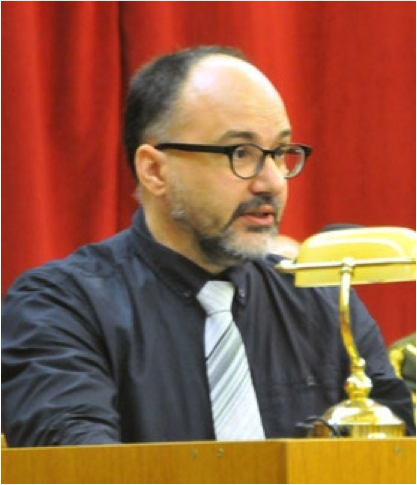 Dr Zdenko Maršálek, Institute for Contemporary History, Academy of Sciences of the Czech Republic, is an expert on the military history of Czechoslovakia and the countries of Central Europe in the years 1918-1945, and on issues of national and ethnic identity and self-identification in Czechoslovakia in the years 1918-1950. Maršálek will contribute a study to the project on Czechoslovak members of the International Brigades, and will also work on ways in which regular soldiers interacted with resistance groups, using the case study of the members of Czechoslovak army who fought and were defeated in France in 1940. Recent publications include ‘Czechoslovak foreign army 1939-1945 and marginalization in the process of collective memory’. In: B. Soukupová, H. Nosková and P. Bednarik: Memory, people, minorities, marginalization, identity I. Urban studies sixth in Prague, Faculty of Humanities, UK, 2013, pp. 41-48; Aus dem Blickwinkel einer Schießscharte oder aus der Perspektive der “großen Strategie“ betrachtet? Ein polemischer Blick auf die Problematik der militärischen Verteidigung der Tschechoslowakei im September 1938. In: J. Zaruski and Zückert M. (eds.): Das Münchener Abkommen von 1938 in europäischer Perspektive. Munich, Oldenbourg Verlag, 2013, pp. 117-144.
Dr Zdenko Maršálek, Institute for Contemporary History, Academy of Sciences of the Czech Republic, is an expert on the military history of Czechoslovakia and the countries of Central Europe in the years 1918-1945, and on issues of national and ethnic identity and self-identification in Czechoslovakia in the years 1918-1950. Maršálek will contribute a study to the project on Czechoslovak members of the International Brigades, and will also work on ways in which regular soldiers interacted with resistance groups, using the case study of the members of Czechoslovak army who fought and were defeated in France in 1940. Recent publications include ‘Czechoslovak foreign army 1939-1945 and marginalization in the process of collective memory’. In: B. Soukupová, H. Nosková and P. Bednarik: Memory, people, minorities, marginalization, identity I. Urban studies sixth in Prague, Faculty of Humanities, UK, 2013, pp. 41-48; Aus dem Blickwinkel einer Schießscharte oder aus der Perspektive der “großen Strategie“ betrachtet? Ein polemischer Blick auf die Problematik der militärischen Verteidigung der Tschechoslowakei im September 1938. In: J. Zaruski and Zückert M. (eds.): Das Münchener Abkommen von 1938 in europäischer Perspektive. Munich, Oldenbourg Verlag, 2013, pp. 117-144.
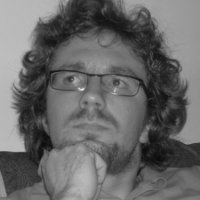 Srđan Milošević is a researcher in the Institute for Recent History (IRH), Serbia, Belgrade. His major fields of research are: social and economic history of Yugoslavia, historical anthropology, legal history and problems of historical revisionism related to WWII in Yugoslavia and Europe. He is particularly interested in the current WWII revisionist narratives in former Yugoslavia, both in historiography and in the public discourse. He is the author of the book Istorija pred sudom. Interpretacija prošlosti i pravni aspekti u rehabilitaciji kneza Pavla Karađorđevića / History Before the Court. Interpretation of History and Legal Aspects in the Prince Paul’s Judicial Rehabilitation (2013).
Srđan Milošević is a researcher in the Institute for Recent History (IRH), Serbia, Belgrade. His major fields of research are: social and economic history of Yugoslavia, historical anthropology, legal history and problems of historical revisionism related to WWII in Yugoslavia and Europe. He is particularly interested in the current WWII revisionist narratives in former Yugoslavia, both in historiography and in the public discourse. He is the author of the book Istorija pred sudom. Interpretacija prošlosti i pravni aspekti u rehabilitaciji kneza Pavla Karađorđevića / History Before the Court. Interpretation of History and Legal Aspects in the Prince Paul’s Judicial Rehabilitation (2013).
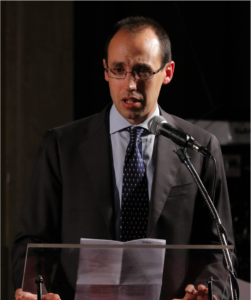 Tommaso Piffer is the Bodossakis Junior Research Fellow at Churchill College in Cambridge. Before that he was Marie Curie Fellow at the University of Cambridge and Harvard University, and a Post doctoral fellow at the Higher School of Economics in Moscow. Among his publications are an account of the relationship between the Allies and the Italian Resistance during World War II (Gli Alleati e la Resistenza Italiana, Il Mulino, 2010) and the forthcoming collection of essays Totalitarian Societies and Democratic Transition (with Vladislav Zubok, CEU Press, 2017). His current project investigates the relations between the Big Three Allies and the European Resistance during the Second World War, with a particular focus on Mediterranean Europe.
Tommaso Piffer is the Bodossakis Junior Research Fellow at Churchill College in Cambridge. Before that he was Marie Curie Fellow at the University of Cambridge and Harvard University, and a Post doctoral fellow at the Higher School of Economics in Moscow. Among his publications are an account of the relationship between the Allies and the Italian Resistance during World War II (Gli Alleati e la Resistenza Italiana, Il Mulino, 2010) and the forthcoming collection of essays Totalitarian Societies and Democratic Transition (with Vladislav Zubok, CEU Press, 2017). His current project investigates the relations between the Big Three Allies and the European Resistance during the Second World War, with a particular focus on Mediterranean Europe.
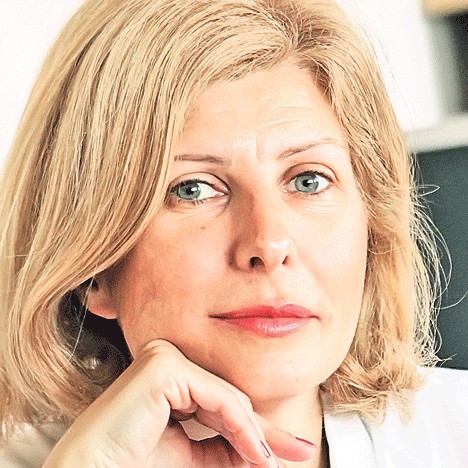 Professor Olga Manojlović Pintar is a Senior Research Fellow in the Institute for Recent History (IRH), Belgrade. She is one of the leading experts in Serbia on the questions of war, resistance, anti-fascist struggle commemoration and the collective identities in Serbia and the Balkans in the 20th century. She has been involved in numerous national and international projects including Re-Visualizing the Recent Past: Museums of Communism and Recent History in Post-Communist Eastern Europe, Central European University and Open Society Archives, Budapest (2011–2012); European national museums: Identity Politics, the Uses of the Past and the European Citizen (EUNAMUS), EU FP Grant Agreement, Seventh Framework Programme, Linköping University (2010-2012).
Professor Olga Manojlović Pintar is a Senior Research Fellow in the Institute for Recent History (IRH), Belgrade. She is one of the leading experts in Serbia on the questions of war, resistance, anti-fascist struggle commemoration and the collective identities in Serbia and the Balkans in the 20th century. She has been involved in numerous national and international projects including Re-Visualizing the Recent Past: Museums of Communism and Recent History in Post-Communist Eastern Europe, Central European University and Open Society Archives, Budapest (2011–2012); European national museums: Identity Politics, the Uses of the Past and the European Citizen (EUNAMUS), EU FP Grant Agreement, Seventh Framework Programme, Linköping University (2010-2012).
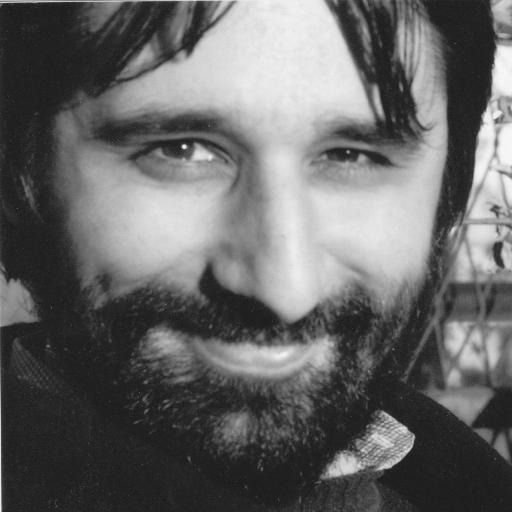 Dr Milovan Pisarri, Researcher and the co-founder of the Centre for Holocaust Research and Education, Belgrade; Institute for Recent History (IRH), Serbia. Dr Pisarri works on crimes against civilians in Serbia and Macedonia; policies towards civilians in times of war in Europe in the twentieth century; the Holocaust; the genocide of the Roma; and anti-fascism in Italy and Yugoslavia. He has published numerous scientific articles in Serbia and abroad. These include “Resistance and places of suffering of civilian population in the city of Belgrade during the Second World War” (Mesta stradanja i antifašističke borbe u Beogradu 1941-1942. Priručnik za čitanje grada) and The Suffering of the Roma in Serbia during the Holocaust. He actively collaborates on international projects, including currently “Killing Sites – First Stage of Holocaust in Serbia and Croatia” (IHRA and Ministry of Culture, Serbia); “Escalating into Holocaust – From execution squads to the gas van of Sajmište – Two defining phases of the Holocaust in Serbia” (EU project under the “Europe for Citizens” Programme Strand 1- European Remembrance, also supported by the Ministry of Culture, Serbia); “L’Italia e la deportazione degli ebrei nei territori occupati durante la Seconda Guerra Mondiale: 1939-1945” (EU project under the “Europe for Citizens” Programme Strand 1- European Remembrance). In October 2015, he was awarded “Vittorio Veneto dalla Vittoria alla Pace” Prize for his PhD thesis on the War crimes of the Occupiers in WWI in Serbia.
Dr Milovan Pisarri, Researcher and the co-founder of the Centre for Holocaust Research and Education, Belgrade; Institute for Recent History (IRH), Serbia. Dr Pisarri works on crimes against civilians in Serbia and Macedonia; policies towards civilians in times of war in Europe in the twentieth century; the Holocaust; the genocide of the Roma; and anti-fascism in Italy and Yugoslavia. He has published numerous scientific articles in Serbia and abroad. These include “Resistance and places of suffering of civilian population in the city of Belgrade during the Second World War” (Mesta stradanja i antifašističke borbe u Beogradu 1941-1942. Priručnik za čitanje grada) and The Suffering of the Roma in Serbia during the Holocaust. He actively collaborates on international projects, including currently “Killing Sites – First Stage of Holocaust in Serbia and Croatia” (IHRA and Ministry of Culture, Serbia); “Escalating into Holocaust – From execution squads to the gas van of Sajmište – Two defining phases of the Holocaust in Serbia” (EU project under the “Europe for Citizens” Programme Strand 1- European Remembrance, also supported by the Ministry of Culture, Serbia); “L’Italia e la deportazione degli ebrei nei territori occupati durante la Seconda Guerra Mondiale: 1939-1945” (EU project under the “Europe for Citizens” Programme Strand 1- European Remembrance). In October 2015, he was awarded “Vittorio Veneto dalla Vittoria alla Pace” Prize for his PhD thesis on the War crimes of the Occupiers in WWI in Serbia.
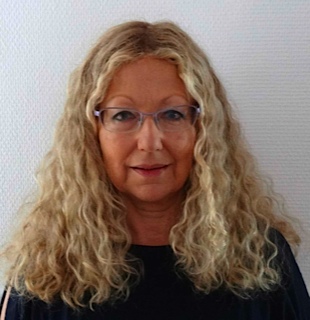 Renée Poznanski is the Yaakov and Poria Avnon Professor of Holocaust Studies in the Department of Politics and Government at Ben Gurion University – a department she has created and headed for several years. She has published extensively on Jews in France during World War II: her research examines their daily lives, relations between Jews and non-Jews, Rescue and Resistance of the Jews and the impact of memory on the historiography of this period. Her book The Jews in France during the World War II, (University Press of New England, 2001; published originally in French) has been awarded the Jacob Buchman Prize for the Memory of the Holocaust. Her book on The Propaganda of the Resistance and the Persecution of the Jews (in French, Fayard, 2008; forthcoming in Hebrew) has been awarded the 2009 Henri Hertz prize by the Chancellerie des Universités de Paris. She has been a fellow at The Remarque Institute (NYU), the Center for Advanced Studies (US Holocaust Memorial Museum, DC), Sciences Po (Paris), the EH ESS (Paris) and the Radcliffe Institute for Advanced Study (Harvard University). Her last book (with Denis Peschanski) focuses on the Drancy internment camp (Drancy, un camp en France, Paris: Fayard). She is presently writing a book on the Resistance of the Jews in France during the Second World War.
Renée Poznanski is the Yaakov and Poria Avnon Professor of Holocaust Studies in the Department of Politics and Government at Ben Gurion University – a department she has created and headed for several years. She has published extensively on Jews in France during World War II: her research examines their daily lives, relations between Jews and non-Jews, Rescue and Resistance of the Jews and the impact of memory on the historiography of this period. Her book The Jews in France during the World War II, (University Press of New England, 2001; published originally in French) has been awarded the Jacob Buchman Prize for the Memory of the Holocaust. Her book on The Propaganda of the Resistance and the Persecution of the Jews (in French, Fayard, 2008; forthcoming in Hebrew) has been awarded the 2009 Henri Hertz prize by the Chancellerie des Universités de Paris. She has been a fellow at The Remarque Institute (NYU), the Center for Advanced Studies (US Holocaust Memorial Museum, DC), Sciences Po (Paris), the EH ESS (Paris) and the Radcliffe Institute for Advanced Study (Harvard University). Her last book (with Denis Peschanski) focuses on the Drancy internment camp (Drancy, un camp en France, Paris: Fayard). She is presently writing a book on the Resistance of the Jews in France during the Second World War.
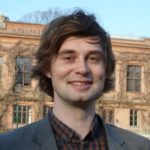 Lennert Savenije studied history in Nijmegen. During his study he attended universities and research institutes in Münster, Brussels and Paris. He is currently finishing a PhD-project concerning the forms of resistance and collaboration in the Dutch border town of Nijmegen during World War II at the Radboud University Nijmegen. More information, including a short English summary, can be found on the website: www.ru.nl/nijmegen1940-1945.
Lennert Savenije studied history in Nijmegen. During his study he attended universities and research institutes in Münster, Brussels and Paris. He is currently finishing a PhD-project concerning the forms of resistance and collaboration in the Dutch border town of Nijmegen during World War II at the Radboud University Nijmegen. More information, including a short English summary, can be found on the website: www.ru.nl/nijmegen1940-1945.
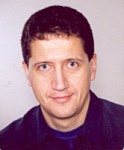 Dr Vít Smetana is Lecturer in the Institute for Contemporary History, Academy of Sciences of the Czech Republic. He has worked on international issues and exiles and his research interests focus on the history of international politics and diplomacy during the 2nd World War and in the first phase of the Cold War; Czechoslovakia and the Powers 1938-1948; and British foreign policy in the 20th century and the Anglo-Czechoslovak relations. As part of this network, he will study transnational transfers between Czechoslovak exiles in London who overcame previous narrow nationalisms in an international community. He will focus on those who joined special forces such as SOE, assembled transnational parties that were sent into the field and worked with resistance movements on the ground.
Dr Vít Smetana is Lecturer in the Institute for Contemporary History, Academy of Sciences of the Czech Republic. He has worked on international issues and exiles and his research interests focus on the history of international politics and diplomacy during the 2nd World War and in the first phase of the Cold War; Czechoslovakia and the Powers 1938-1948; and British foreign policy in the 20th century and the Anglo-Czechoslovak relations. As part of this network, he will study transnational transfers between Czechoslovak exiles in London who overcame previous narrow nationalisms in an international community. He will focus on those who joined special forces such as SOE, assembled transnational parties that were sent into the field and worked with resistance movements on the ground.
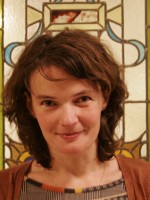 Prof. dr. Ismee Tames is Director of Research and Senior Researcher at the Institute for War, Holocaust and Genocide Studies (NIOD), Amsterdam. Since July 2015, she has also been endowed professor at the University of Utrecht. The Stichting 1940-1945 (Foundation 1940-1945), has established this special chair in collaboration with Utrecht University. Entitled Stichting 1940-1945: geschiedenis en betekenis van verzet tegen onderdrukking en vervolging (Foundation 1940-1945: history and meaning of resistance against oppression and prosecution). She is project leader of Very ordinary or quite special? New views on people in the resistance during the German occupation of the Netherlands 1940-1945 and prepares a new research program under the provisional title Liminal moments from peace to war.
Prof. dr. Ismee Tames is Director of Research and Senior Researcher at the Institute for War, Holocaust and Genocide Studies (NIOD), Amsterdam. Since July 2015, she has also been endowed professor at the University of Utrecht. The Stichting 1940-1945 (Foundation 1940-1945), has established this special chair in collaboration with Utrecht University. Entitled Stichting 1940-1945: geschiedenis en betekenis van verzet tegen onderdrukking en vervolging (Foundation 1940-1945: history and meaning of resistance against oppression and prosecution). She is project leader of Very ordinary or quite special? New views on people in the resistance during the German occupation of the Netherlands 1940-1945 and prepares a new research program under the provisional title Liminal moments from peace to war.
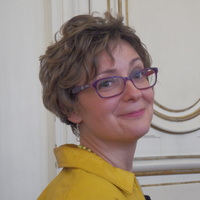 Professor Mercedes Yusta Rodrigo is Professeure des Universités en Histoire Contemporaine de l’Espagne au Département d’Espagnol de l’Université Paris 8, Institut Universitaire de France (IUF). She is a leading scholar of the resistance to Franco in the period after 1939, focussing on continuing rural resistance and guerrilla warfare in north-east Spain, closest to the French border, and to the role of Spanish republicans in exile in France who contributed to the French resistance and endeavoured to liberate Spain in 1944. She is also a reknowned historian of gender issues with her Madres Coraje contra Franco. La Unión de Mujeres Españolas en Francia, del antifascismo a la Guerra Fría (1941- 1950), Madrid, Cátedra (col. « Feminismos »), 2009.
Professor Mercedes Yusta Rodrigo is Professeure des Universités en Histoire Contemporaine de l’Espagne au Département d’Espagnol de l’Université Paris 8, Institut Universitaire de France (IUF). She is a leading scholar of the resistance to Franco in the period after 1939, focussing on continuing rural resistance and guerrilla warfare in north-east Spain, closest to the French border, and to the role of Spanish republicans in exile in France who contributed to the French resistance and endeavoured to liberate Spain in 1944. She is also a reknowned historian of gender issues with her Madres Coraje contra Franco. La Unión de Mujeres Españolas en Francia, del antifascismo a la Guerra Fría (1941- 1950), Madrid, Cátedra (col. « Feminismos »), 2009.
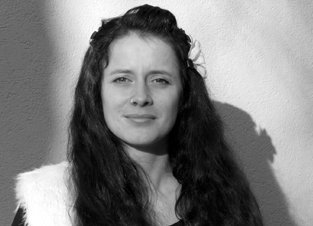 Dr Franziska Zaugg is a Gerda-Henkel-Foundation Postdoctoral Fellow at UCD’s Centre for War Studies. She studied at the University of Bern and Fribourg (Switzerland) and is primarily interested in the history of World War II in Southeastern Europe and the commemoration of that conflict during and after the era of Tito and Enver Hoxha. In her PhD, Dr Zaugg analysed German and Italian occupation regimes in Albania as well as in the Kosovo and the Sandžak region. Her study explains the highly complex system of Nazi recruitment of Albanian Muslims into the Waffen-SS and the reaction of the local population. In her current postdoctoral project at UCD’s Centre for War Studies, Dr Zaugg expands her PhD work by concentrating on the cultural history of three different Waffen-SS divisions in Bosnia, Sandžak, Kosovo and Albania: the Handžar-, Kama- and Skanderbeg-Divisions.
Dr Franziska Zaugg is a Gerda-Henkel-Foundation Postdoctoral Fellow at UCD’s Centre for War Studies. She studied at the University of Bern and Fribourg (Switzerland) and is primarily interested in the history of World War II in Southeastern Europe and the commemoration of that conflict during and after the era of Tito and Enver Hoxha. In her PhD, Dr Zaugg analysed German and Italian occupation regimes in Albania as well as in the Kosovo and the Sandžak region. Her study explains the highly complex system of Nazi recruitment of Albanian Muslims into the Waffen-SS and the reaction of the local population. In her current postdoctoral project at UCD’s Centre for War Studies, Dr Zaugg expands her PhD work by concentrating on the cultural history of three different Waffen-SS divisions in Bosnia, Sandžak, Kosovo and Albania: the Handžar-, Kama- and Skanderbeg-Divisions.